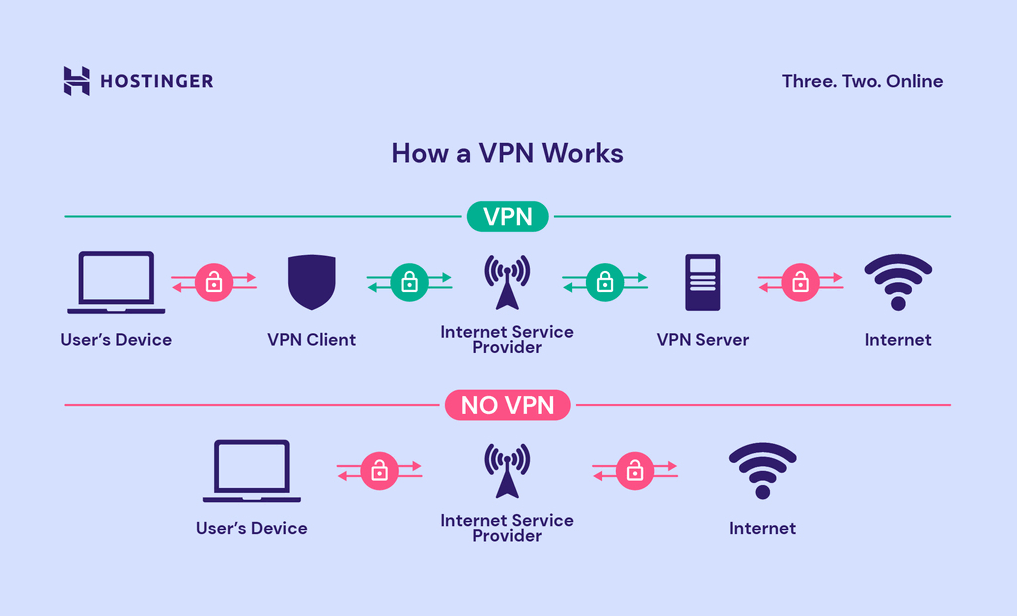A Virtual Private Network (VPN) is a tool that helps to protect your online privacy and security by creating a private network from a public internet connection. VPNs are increasingly popular, especially for people who want to access the internet anonymously, bypass censorship, and protect their online activities from prying eyes. In this article, we’ll discuss what VPNs are, how they work, their benefits, and some important considerations to keep in mind.
What is a VPN?
A VPN is a technology that creates a private network over a public internet connection. When you use a VPN, your internet traffic is encrypted and routed through a private network before it reaches its destination. This process helps to keep your online activity private and secure, even when you’re using public Wi-Fi networks.
How do VPNs work?
When you connect to a VPN, your device communicates with a remote VPN server. This server encrypts your data and sends it through a secure tunnel to its destination. The destination server then sends the response back through the same tunnel to the VPN server, which decrypts the data and sends it back to your device.
This process not only helps to keep your data private but also helps to protect your identity and location by masking your IP address. When you connect to a VPN server, your IP address is replaced with the server’s IP address. This makes it difficult for anyone to track your online activity or identify your location.

What are the benefits of using a VPN?
There are many benefits of using a VPN, including:
- Privacy and security: VPNs help to keep your online activity private and secure by encrypting your data and masking your IP address.
- Access to geo-restricted content: Many websites and streaming services restrict access to content based on your location. With a VPN, you can bypass these restrictions and access content from anywhere in the world.
- Bypassing censorship: Some countries restrict access to certain websites and online services. With a VPN, you can bypass these restrictions and access the internet freely.
- Protection on public Wi-Fi: Public Wi-Fi networks are often unsecured, which makes it easy for hackers to intercept your data. A VPN helps to protect your data on public Wi-Fi networks by encrypting your data and masking your IP address.
- Cost savings: Some online retailers offer different prices to customers based on their location. With a VPN, you can change your location and potentially save money on online purchases.
What should you consider when choosing a VPN?

When choosing a VPN, there are several factors to consider:
- Security: Look for a VPN that offers strong encryption and doesn’t log your online activity.
- Speed: Some VPNs can slow down your internet connection. Look for a VPN that offers fast speeds.
- Server locations: Look for a VPN that offers servers in the locations you need to access geo-restricted content.
- Compatibility: Make sure the VPN you choose is compatible with your device and operating system.
- Cost: VPNs vary in price, so consider your budget when choosing a VPN.
- Customer support: Look for a VPN that offers good customer support in case you have any issues.
Conclusion
VPNs are an important tool for anyone who values their online privacy and security. They help to keep your online activity private and secure, bypass geo-restrictions, and protect your data on public Wi-Fi networks. When choosing a VPN, consider factors such as security, speed, server locations, compatibility, cost, and customer support. With the right VPN, you can enjoy a safer and more private online experience.



